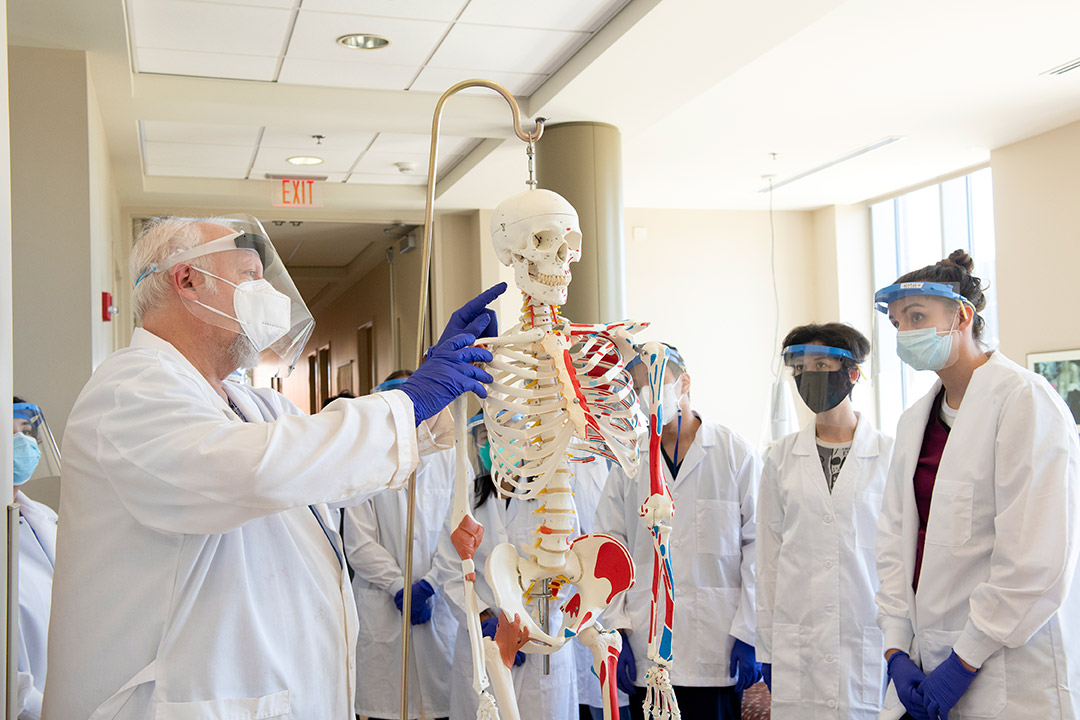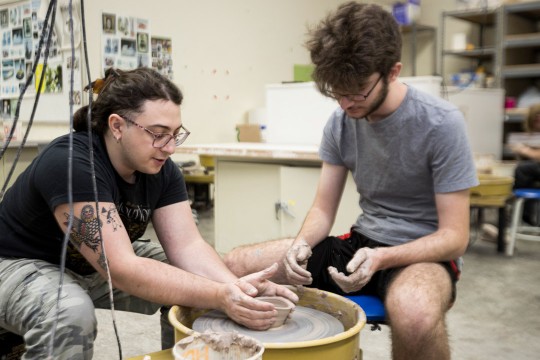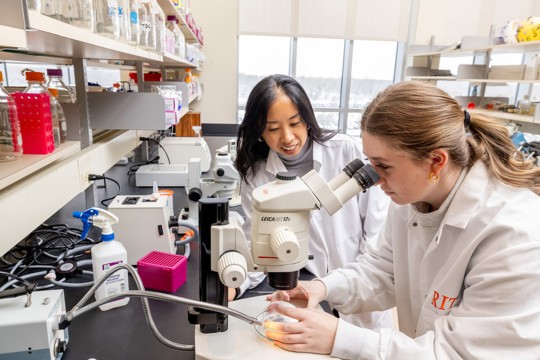College of Health Sciences and Technology adopts new organizational structure
A. Sue Weisler
The College of Health Sciences and Technology prepares for growth with a new streamlined organizational structure. Here, James Perkins, head of the Department of Medical Sciences, Health, and Management, talks to students in his gross human anatomy class.
RIT’s College of Health Sciences and Technology is preparing for significant growth with a new streamlined organizational structure. The move clarifies direct reporting and aligns the college with the university’s model of grouping programs under departments.
With input from faculty and staff, Yong “Tai” Wang, dean of the College of Health Sciences and Technology, formed two departments of related programs to stand alongside the existing Wegmans School of Health and Nutrition.
Professor Hamad Ghazle was named head of the new Department of Clinical Health Professions, which includes physician assistant BS/MS, diagnostic medical sonography BS/certificate, echocardiography (cardiac ultrasound) certificate, and the Priority Behavioral Health and Clinical Psychology Internship. Ghazle remains the director of diagnostic medical sonography.
Professor James Perkins was named head of the new Department of Medical Sciences, Health, and Management, which consists of biomedical sciences BS, medical illustration MFA, and the hybrid health systems management MS. Perkins is also director of the graduate medical illustration program.
Professor Barbara Lohse remains the department head of the Wegmans School of Health and Nutrition, which offers exercise science BS/certificate, dietetics and nutrition BS, nutritional sciences BS, and health and well-being management MS.
“The departmental structure will benefit our programs through resource sharing and synergistic collaboration,” Wang said. “The simplified structure creates clear channels of communication and readies the college for expansion.”
The College of Health Sciences and Technology currently has nearly 600 students. Wang is looking to guide growth in three areas: expanding existing programs, developing new degree programs, and enhancing the premedical studies advisory program to attract first-year students.
Curriculum revision, expansion of existing programs, and the addition of new programs will improve student learning outcomes and diversification of the college offerings and allow the college to keep pace with continually evolving global and medical environments.
The College of Health Sciences and Technology also houses a university-wide resource for students interested in pursuing advanced degrees in medical and other health fields. Pre-medical and Pre-health Professions Advising guides students from all colleges through the admissions process to medical school or other health-related programs. Elizabeth Perry, faculty member in the Department of Medical Sciences, Health and Management, is the director of Pre-medical and Pre-health Professions Advising.








